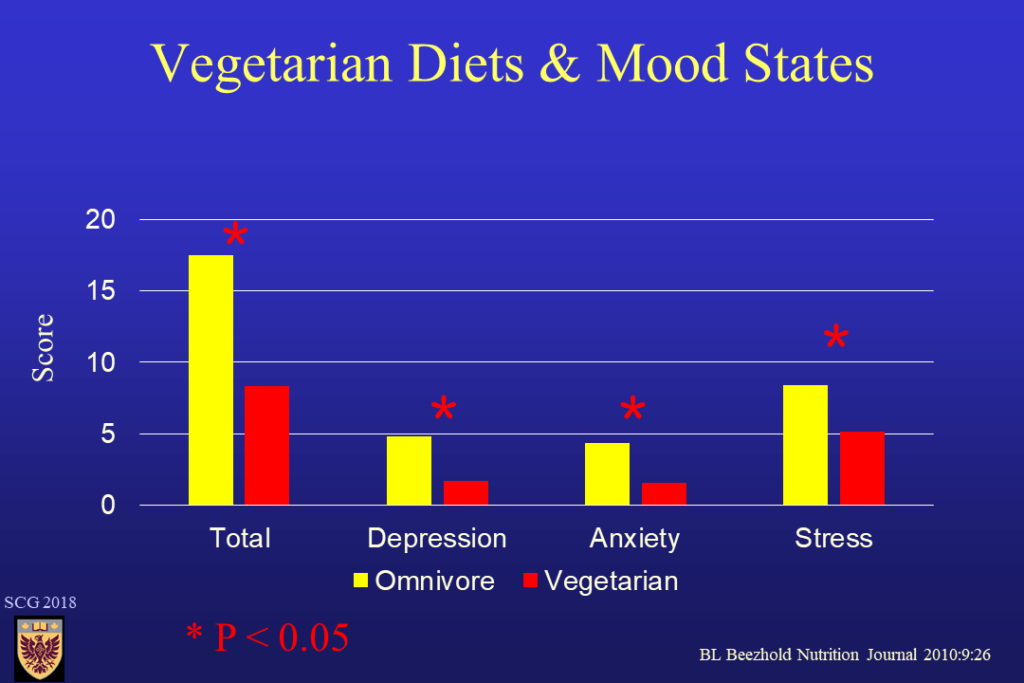Diet and anxiety
While many people are aware of the benefits of a whole food plant-based (WFPB) diet for medical conditions such as obesity, type 2 diabetes, and heart disease, less is generally known about the effects of diet on mood (eg depression, anxiety). Since a WFPB diet excludes major dietary sources of eicosapentanoic acid (EPA) and docosahexanoic acid (DHA) which are critical for regulation of brain cell structure and function, there are reasonable grounds for concern that there could be deleterious effects on brain function.
A recent study examined associations between mood state and polyunsaturated fatty acid intake as a result of adherence to a vegetarian or omnivorous diet in a cross-sectional study of 138 Seventh Day Adventists living the the Southwest USA. Participants completed a quantitative food frequency questionnaire, Depression Anxiety Stress Scale (DASS) and Profile of Mood States (POMS) questionnaires. It was found that vegetarians (n=60) reported significantly lower DASS scores including the total, depression, anxiety,and stress subscales (see figure).
In addition: 1) The total POMS score (which are estimates of the intensity of mood disturbance) was markedly lower (15.33 for omnivores vs 0.10 for vegetarians;p=0.007); 2) There were significantly lower scores for vegetarians on the subscales which measured tension-anxiety (6.04 vs 3.83;p=0.03), depression (8.99 vs 4.36;p<0.001) and anger-hostility (7.08 vs 4.28;p=0.01). However since this was an observational study, no conclusions about causality can be made (ie there could be other reasons besides the difference in diet to explain the different scores in the two groups).
In order to be able to conclude that diet results in differences in anxiety, one would need a randomized controlled trial.
A randomized controlled trial of 292 subjects at 10 corporate sites of a major US insurance company (GEICO) was conducted to determine whether a plant-based nutrition program in a multicenter, corporate setting improves depression, anxiety, and productivity. To be eligible for the study, subjects had to have an elevated body mass index (BMI >25 kg/m2) and/or previous diagnosis of type 2 diabetes. The study was 18 weeks long and looked at measure of quality of life (SF-36) and work productivity(WPAI). The study showed significant improvements in measures of depression (p<0.001) and anxiety (p<0.001) in the plant-based group in comparison to the group which remained on a regular (omniverous) diet. Since this was a randomized controlled trial, it is reasonable to conclude that the observed differences were due to the dietary intervention.
Thus a WFPB diet is effective in preventing and treating diabetes, heart disease and reduces measures of anxiety and depression. For an overview of my website see here.
